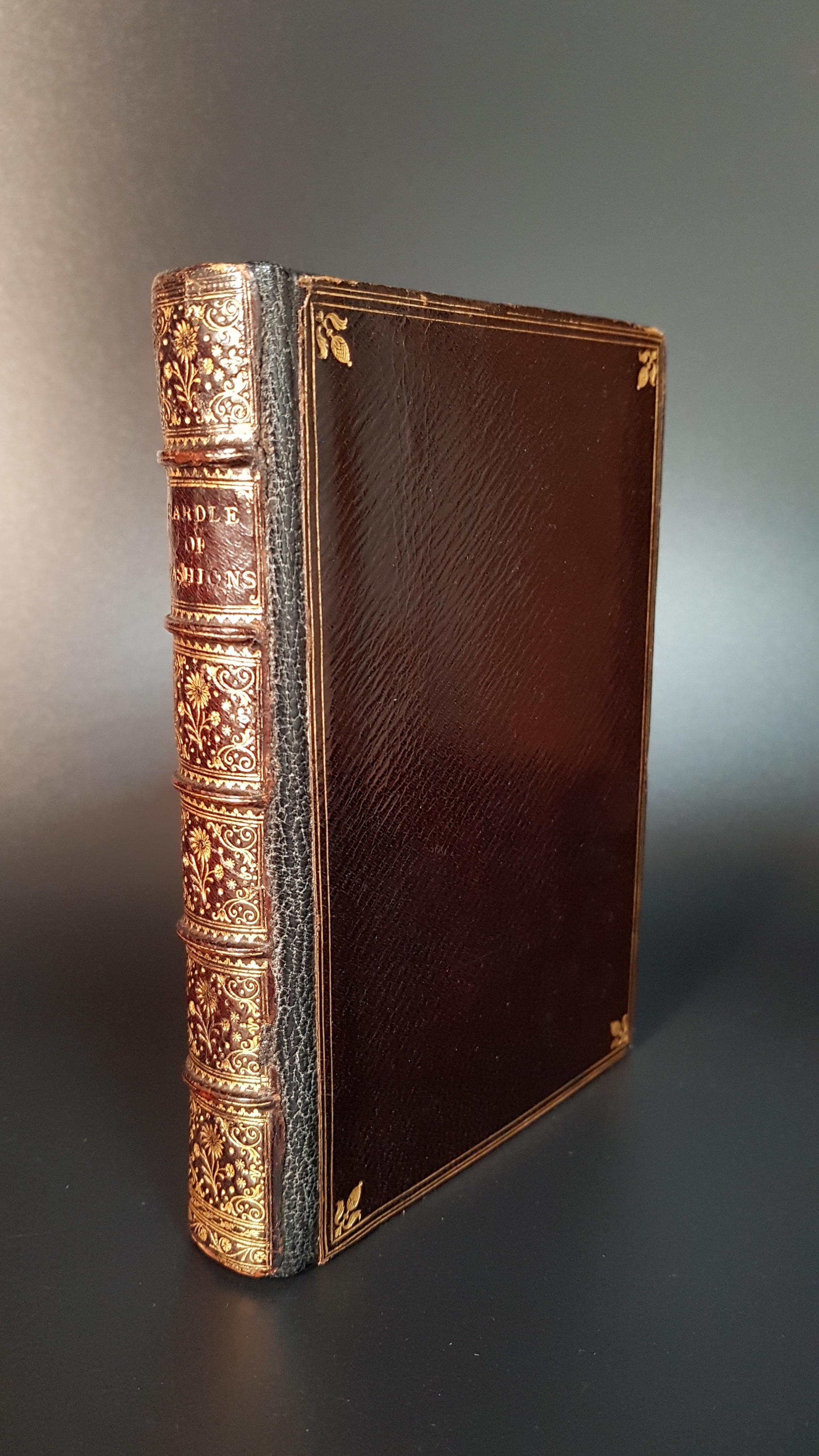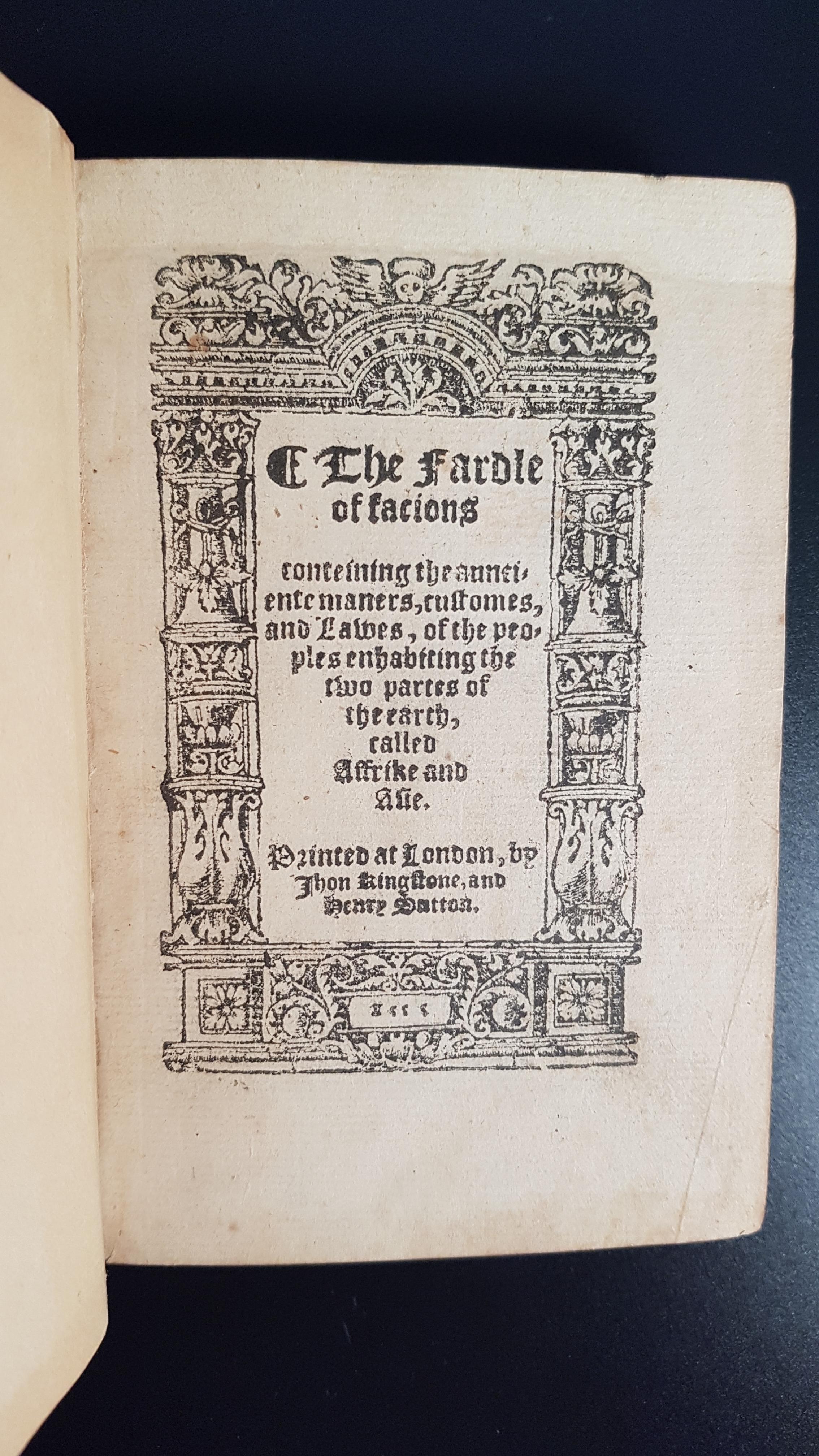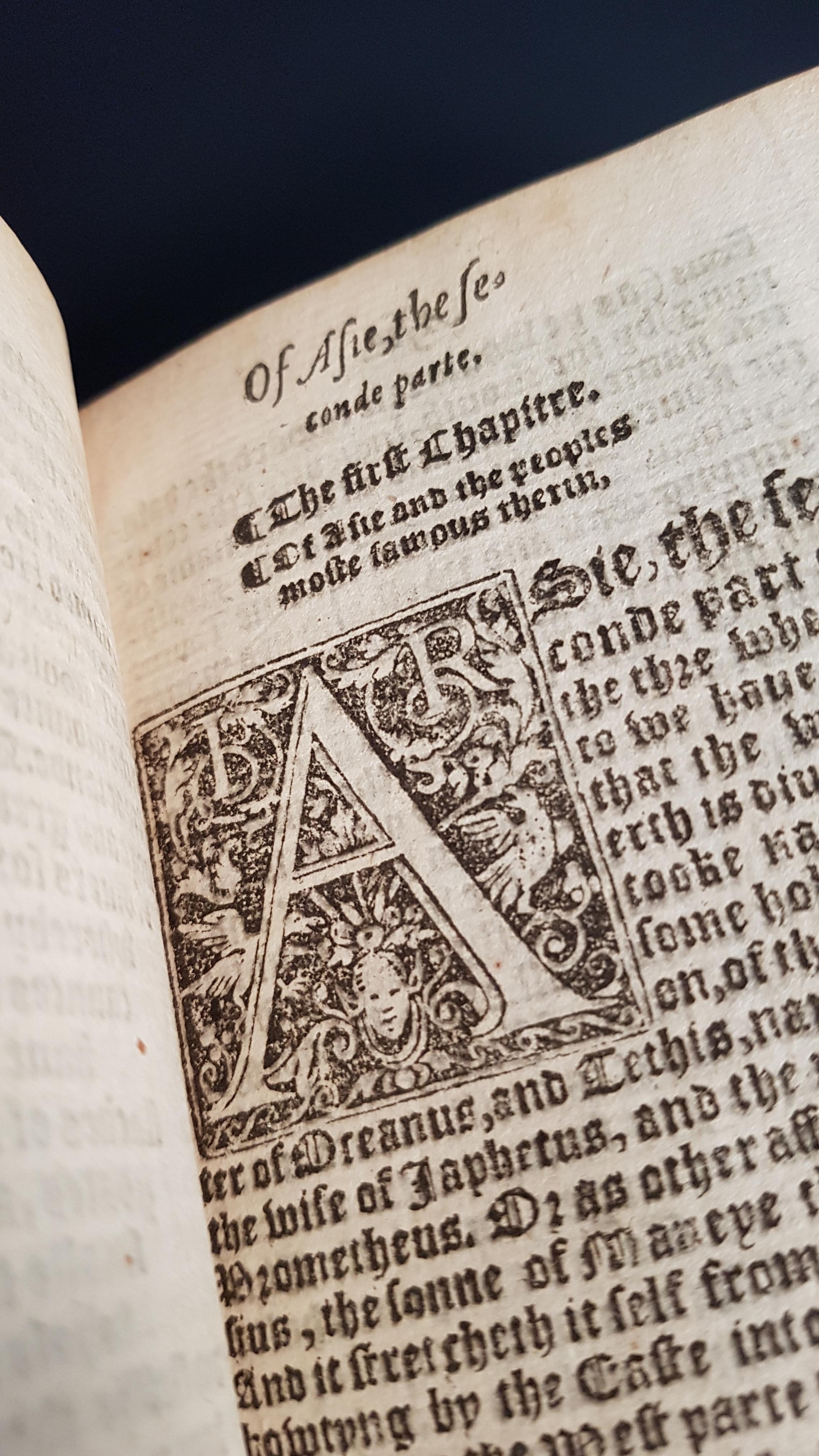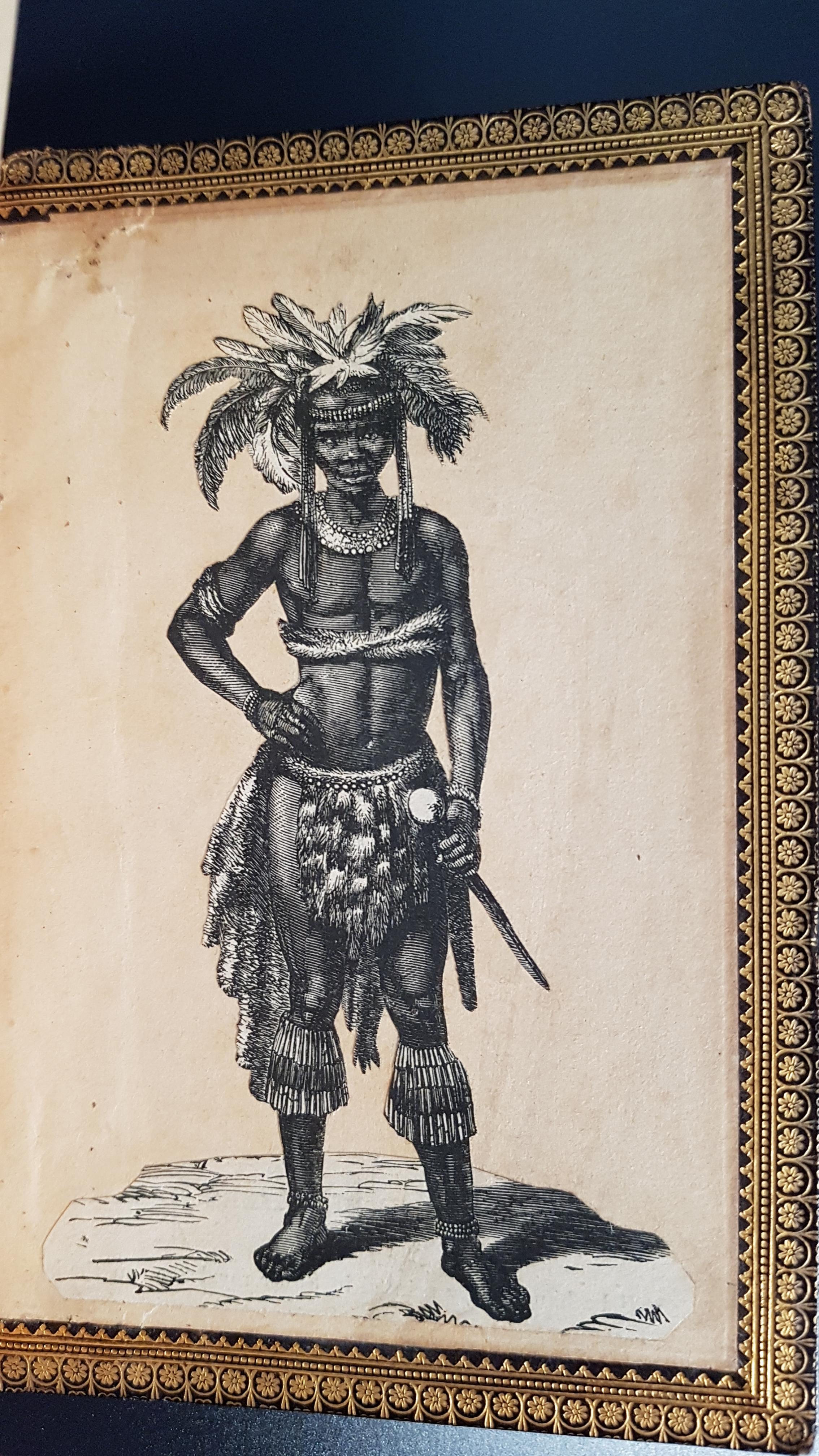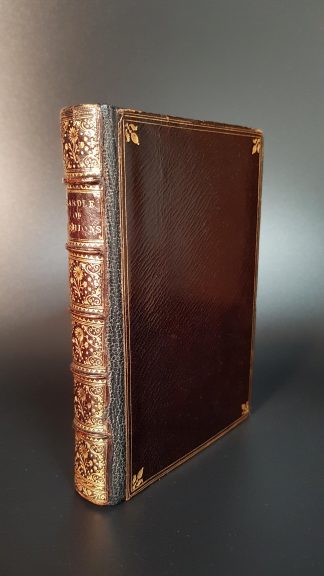BOEMUS, Johann.
A FIRST FROM JOSEPHUS
The Fardle of Facions, Conteining the Aunciente Maners, Customes, and Lawes, of … Affrike and Asie.
London, Printed by Jhon Kingstone, and Henry Sutton, 1555£19,500.00
FIRST EDITION. [368] p. ; 8⁰. *⁴ A-Y⁸ Z⁴. “‘The treatise of Iosephus, conteyning the ordres, and lawes of the Iewes commune wealthe’, a translation of book 4, chapter 8 of ‘Antiquitates Judaicae’, leaves T7-Z2.” ESTC. Title within woodcut border, large white on black criblé initials, Cardiff Castle bookplate on pastedown, small early woodcut of Paris choosing Aphrodite pasted below, bookplate of the Fox Pointe collection on rear fly, C19th engraving of African cut out and pasted on rear pastedown. Light age yellowing, title expertly restored in blank upper margin, two small repairs to blank margins of second leaf, a little thumb marking to lower margins of first five leaves. A very good copy, crisp and clean, in late C19th black straight grained morocco by Pratt, covers bordered with a triple gilt rule, small fleurons gilt at corners, spine, rebacked with original spine laid down, with gilt ruled raised bands, richly gilt in compartments with small scrolled and pointillé tools, gilt flowers at centre, edges gilt ruled, inner dentelles richly gilt, a.e.g. corners a little worn, extremities fractionally rubbed.
A very good copy of the rare and important first English edition of books one and two of Omnium Gentium Mores, Leges et Ritus translated by William Waterman; the Fardle of Facions is considered “the first scientific approach to ethnology, (in English) portraying a ‘pleasant variety of things and yet more profit in the pith’” (Cox I, pp. 69-70). Johann Boemus (c.1485-1535) was a German humanist, canon of Ulm Cathedral, traveller, and Hebraist. His work, first published in 1520, was reprinted multiple times in the sixteenth century, with later additions, accumulating related treatises by other scholars. It influenced Sebastian Muenster’s Cosmography, and inspired the Hauptchronik of Sebastian Franck. It helped set the stage for subsequent investigations of the connections of law to culture, including Paul Henri Mallett’s Northern Antiquities. “Johannes Boemus’s popular Latin work on the manners, laws, and customs of peoples ancient and modern, Omnium Gentium Mores was first published in Augsburg in 1520. By the early seventeenth century it had appeared in twenty-three editions and five languages, including the English, The fardle of facions. Although he has been called the “first anthropologist,” Boemus draws primarily on older sources such as Herodotus rather than incorporating recent eyewitness accounts of the New World. His account of Indian “blackness” draws on Aristotle’s “one-seed” theory of conception, whereby the child’s appearance is determined by the father alone.” Loomba A., ‘Race in Early Modern England.’
Boemus’ work is interesting for not mentioning the recent accounts of travellers coming back from the New World, and Asia, even though his work could be said to have been inspired by these voyages. “Boemus, a cleric and learned humanist, resolutely kept his distance from many contemporary reports about far off people, he remained cautious as to their truthfulness, he doubted the factual and moral qualification of some of their authors. .. This was no humanist disdain of modernity .. Neither .. was Boemus ignorant of recent travel and discovery literature. The .. book had a different idea and purpose, it was meant to be a critical complement to recent travel books and to give a fundamental outline of cultural development and variety in general. .. It would not be unreasonable to take Boemus’ book as a major reference for early modern European perceptions of human culture on a global scale. Margaret Hodgen, .. takes Boemus’ book as significant for the decisive step from ‘Classical Heritage’ and ‘Medieval Prologue’ towards ‘Early Anthropology’.” Joan Pau Rubiés ‘Shifting Cultures: Interaction and Discourse in the Expansion of Europe.’
This extremely rare translation into English does not contain the original letter of dedication and the third part of the original edition on Europe, but does add, “The treatise of Iosephus, conteyning the ordres, and lawes of the Iewes commune wealthe’, translation into English of book 4, chapter 8 of ‘Antiquitates Judaicae’.
STC 3197; ESTC S102775In stock


